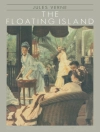Joseph Conrad’s ‘Greatest Works of Joseph Conrad’ presents a compelling exploration of the human condition, intricately weaving tales of existential struggle, moral ambiguity, and the often treacherous intersection of civilization and savagery. Through a masterful command of prose, Conrad employs impressionistic narrative techniques that reflect the complexities of human psychology. His stories, steeped in a rich maritime context and informed by his own experiences as a sailor, reveal the challenges of navigating both the external world and the inner self, producing an engaging literary style that invites deep reflection. Conrad, born Józef Teodor Konrad Korzeniowski in 1857, was shaped by a turbulent early life that included political exile, maritime adventures, and a profound sense of alienation. His diverse experiences influenced his literary voice, which often grappled with themes of imperialism and identity, making him a pivotal figure in modern literature. His journey from Poland to the heart of the British Empire adds a unique dimension to his work, enriching the narratives with a sense of introspective depth and cross-cultural insight. This anthology is an essential read for enthusiasts of classic literature and those intrigued by the interplay of morality in an increasingly fragmented world. Conrad’s acute observations and intricate storytelling provide timeless reflections on the complexities of human nature, making this collection a valuable addition to anyone’s literary library.
Circa l’autore
Joseph Conrad, born Józef Teodor Konrad Korzeniowski on December 3, 1857, in Berdychiv, Ukraine, was a Polish-British writer acclaimed for his contributions to English literature. Conrad’s literary career blossomed in the English language, remarkable given that English was his third language after Polish and French. He became known for his narrative style and acute insights into human nature. Conrad’s seafaring experiences deeply influenced his writings, imbuing them with a rich maritime atmosphere and exploring themes of existentialism and colonialism. His masterpieces, often embodying a complex moral landscape, include ‘Heart of Darkness’, ‘Lord Jim’, and ‘Nostromo’. These works, along with others, are compiled in ‘Greatest Works of Joseph Conrad’. ‘Heart of Darkness’ remains particularly notable for its profound commentary on imperialism and its psychological depth. Conrad’s work is characterized by a skepticism of civilization and a pervasive sense of irony, leaving an indelible impact on the 20th-century fiction. His narrative techniques, combining non-linear progression with intricate character studies, have made him a forerunner in the modernist literary movement. Conrad’s influence extends beyond literature, impacting arts and philosophy, and ensuring his legacy as a key figure in the transition between Victorian and modernist literature. He passed away on August 3, 1924, in Bishopsbourne, England, leaving behind a corpus that continues to be celebrated for its introspective sophistication and profound humanity.












